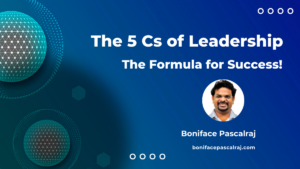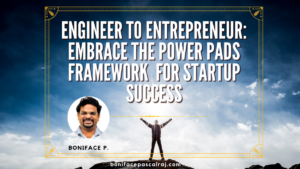When it comes to early-stage fundraising, a common debate arises: What holds more weight—the idea (or product) or the founder (or team)? While a groundbreaking idea or a well-developed product may seem like the ultimate differentiator, execution is what truly determines success. And execution is driven by the founder.
Why Founders Matter More in Early-Stage Startups
At the early stage, an idea goes through multiple iterations before becoming a market-ready product. It transitions from idea → proof of concept (PoC) → prototype → minimum viable product (MVP) → final product. This evolution requires resilience, adaptability, and strategic execution—qualities that reside in the founder rather than in the idea itself.
Government grants and CSR funds provide early-stage founders with financial support. Some schemes directly fund startups, such as the Biotechnology Ignition Grant (BIG) by the Department of Biotechnology, Govt. of India, or TANSEED and SC-ST Equity Funds by the Govt. of Tamil Nadu. Others, such as Startup India Seed Fund, NIDHI PRAYAS, and Genesis, are disbursed through incubators.
Earlier, many incubators prioritized technology and ideas over the entrepreneur’s ability to build a sustainable business. However, the success rate was not particularly high. Why? Because the person behind the idea matters the most. While many tech founders are passionate about their innovation, not all have the entrepreneurial mindset required to scale it into a business.
My Experience at the Founder Institute
One of the first institutions to emphasize the founder-first approach was the Founder Institute, a pre-seed accelerator launched in 2009. As a participant and later as the Director of the Chennai Chapter, I experienced firsthand how the program prioritized the entrepreneur over the idea.
The Founder DNA Assessment was a unique tool used to evaluate potential founders based on their psychological and behavioral traits rather than the startup idea itself. This ensured that the selected entrepreneurs had the mindset and resilience required to navigate the unpredictable startup journey.
This approach aligns with what Elon Musk emphasizes when hiring people. He famously asks two questions:
- “Tell me the story of your life, the decisions you made, and how you made them.”
- “Tell me about the difficult problems you worked on and how you solved them.”
For startups, these questions translate into:
- What problem are you solving?
- How capable are you of solving it and scaling your business?
These questions also reflect Barack Obama’s philosophy: “Just learn how to get stuff done.” (Read my blog post: The Power of Initiative – Kaviya Ravi’s Impact at SSN iFound)
Execution Over Ideation: Why Some Startups Struggle Despite Funding
Over the years, I have come across cases where tech-driven startups received grants and kept building products without commercialization. This reiterates the importance of entrepreneurial ability over just having a great product. While some incubators have begun assessing founders’ business acumen, many still focus heavily on the technology alone.
A startup’s journey from idea to scale requires grit, adaptability, and decision-making skills. These are more crucial than just technical expertise. (For insights on decision-making, read: Mastering the Art of Decision-Making)
What Happens When Startups Scale? The Shift in Leadership
As startups grow, investors sometimes bring in professional CEOs to replace the founding team. The most famous example is Flipkart, where Sachin and Binny Bansal were eventually replaced by professional executives. Even Steve Jobs was forced out of Apple, only to make a historic comeback later.
On the other hand, some founders continue leading their companies as CEOs. Mark Zuckerberg at Meta and Elon Musk across multiple ventures are examples of founders who have successfully retained control.
But what determines whether a founder stays or is replaced?
- Ability to Scale Leadership – Early-stage founders need to transition from doers to leaders. They must evolve their role from building a product to managing teams, operations, and large-scale business strategies. (For insights on leadership evolution, read: Navigating Team Dynamics)
- Execution and Business Acumen – As a startup grows, the ability to make high-stakes decisions becomes critical. (Related post: Mastering the Mundane – The Unseen Side of Building a Startup)
- Investor Confidence – If investors believe that a founder can scale the company effectively, they will retain them. Otherwise, professional management takes over.
Final Thoughts: Attitude Trumps Everything
Whether in startups or hiring, attitude outweighs skills. (Related post: Navigating Team Dynamics: A Guide for Startup Founders and Business Leaders) Investors and incubators are now focusing more on the founder’s mindset, execution capability, and resilience rather than just the innovation.
As an entrepreneur, your ability to execute, pivot, and lead is what ultimately determines success. A great idea or product is just the starting point—the real differentiator is the person behind it.
(For more insights on motivation and self-discipline, read: Motivation and Self-Discipline in Achieving Startup Success)



